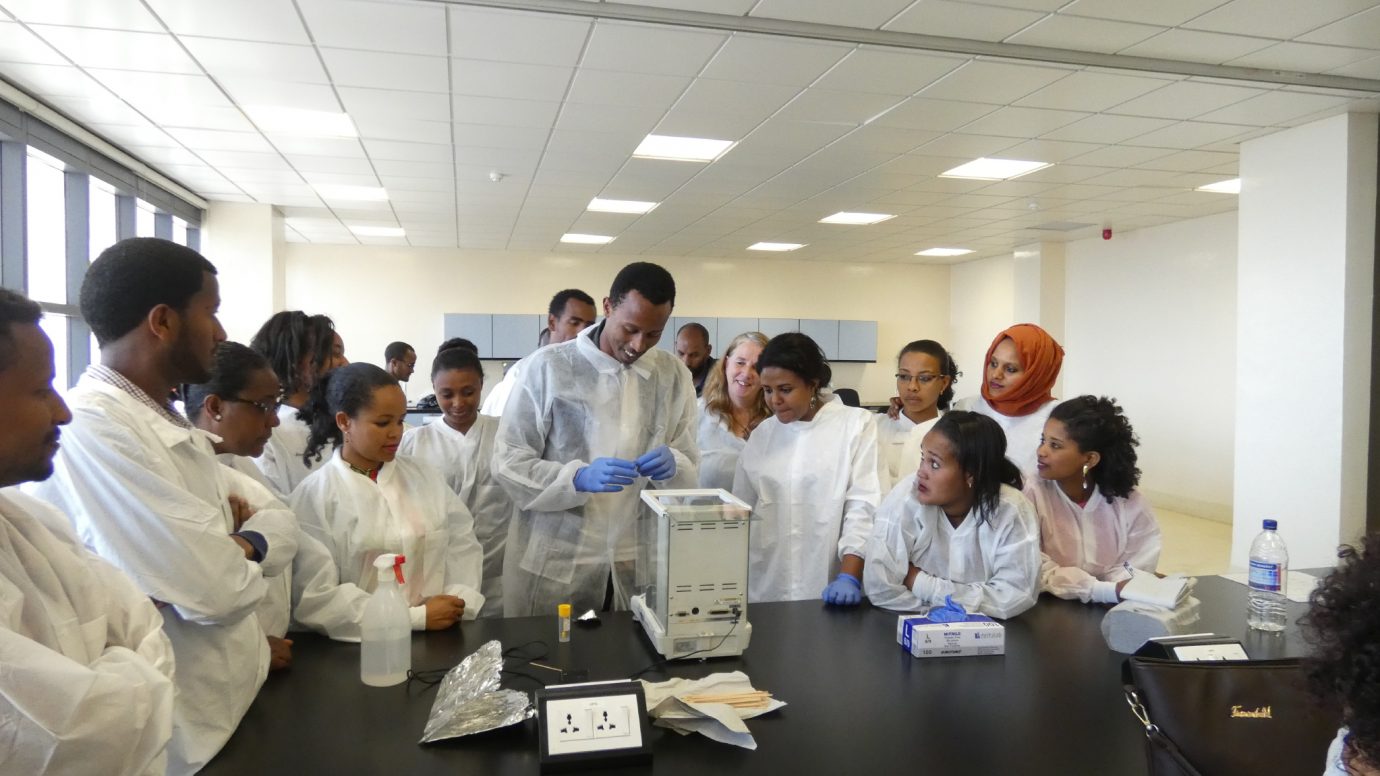In the fall of 2018 we announced the development of a simple stool-based diagnosis by KNCV Tuberculosis Foundation that could be a global lifesaver by enabling millions more children at risk from tuberculosis (TB) and multi drug resistant tuberculosis to be tested, using GeneXpert.
As a sequel to the first positive results of the KNCV one step stool processing method for diagnosing TB in children, a four day training for laboratory staff and a one day orientation for clinicians was held in Ethiopia.
The aim of this stool project in Ethiopia is to evaluate the use of the simple one step stool method for diagnosing TB in children by comparing it to the current routine procedure of sputum (nasogastric aspiration) samples in combination with clinical diagnosis. Obtaining these samples is often traumatizing for the children and their parents. KNCV presented the new, painless and easy stool method during the 49th Union World Conference on Lung Health this year in The Hague.
More specifically the project objectives are:
- To determine the concurrence between sputum and stool to obtain a bacteriological confirmation of TB
- To assess if GeneXpert MTB/RIF testing of stool samples in children is feasible
- To measure acceptance by laboratory staff of using stool for PTB diagnosis
- To investigate whether the use of stool in PTB diagnosis would increase the proportion of bacteriological confirmation for childhood TB cases.
The clinicians and laboratory staff enrolled in the training came from nineteen facilities (sixteen health centres and three hospitals). The project in Ethiopia is a collaboration between KNCV, USAID/Challenge TB, EPHI and the National TB program of the Federal Ministry of Health and Addis Ababa City Health Bureau.
The training was facilitated by trainers from EPHI and KNCV/USAID/Challenge TB. It started with an orientation for the heads of facilities on the aim of the project and the importance of diagnosing TB in children, the challenges with the current invasive methods to collect sputum and the need to move to non-invasive methods.
On the second day, the clinicians together with lab technicians were oriented on the project and the details of the study were discussed. In addition, roles and responsibilities, different procedures and which forms to fill to collect the much needed evidence were thoroughly discussed. On the last two days, the lab staff practiced stool processing up to result reporting at the EPHI training facilities where nineteen samples were successfully processed and results reported.
After completion of the training, enrollment will start in all nineteen sites and the aim is to enroll at least 500 children with presumptive TB who all will – besides the routine procedures – provide one stool sample for processing and testing. The aim is that in March 2019 the first results will be available.
The stool project is also being rolled out in Indonesia. Keep visiting our website for more info.

